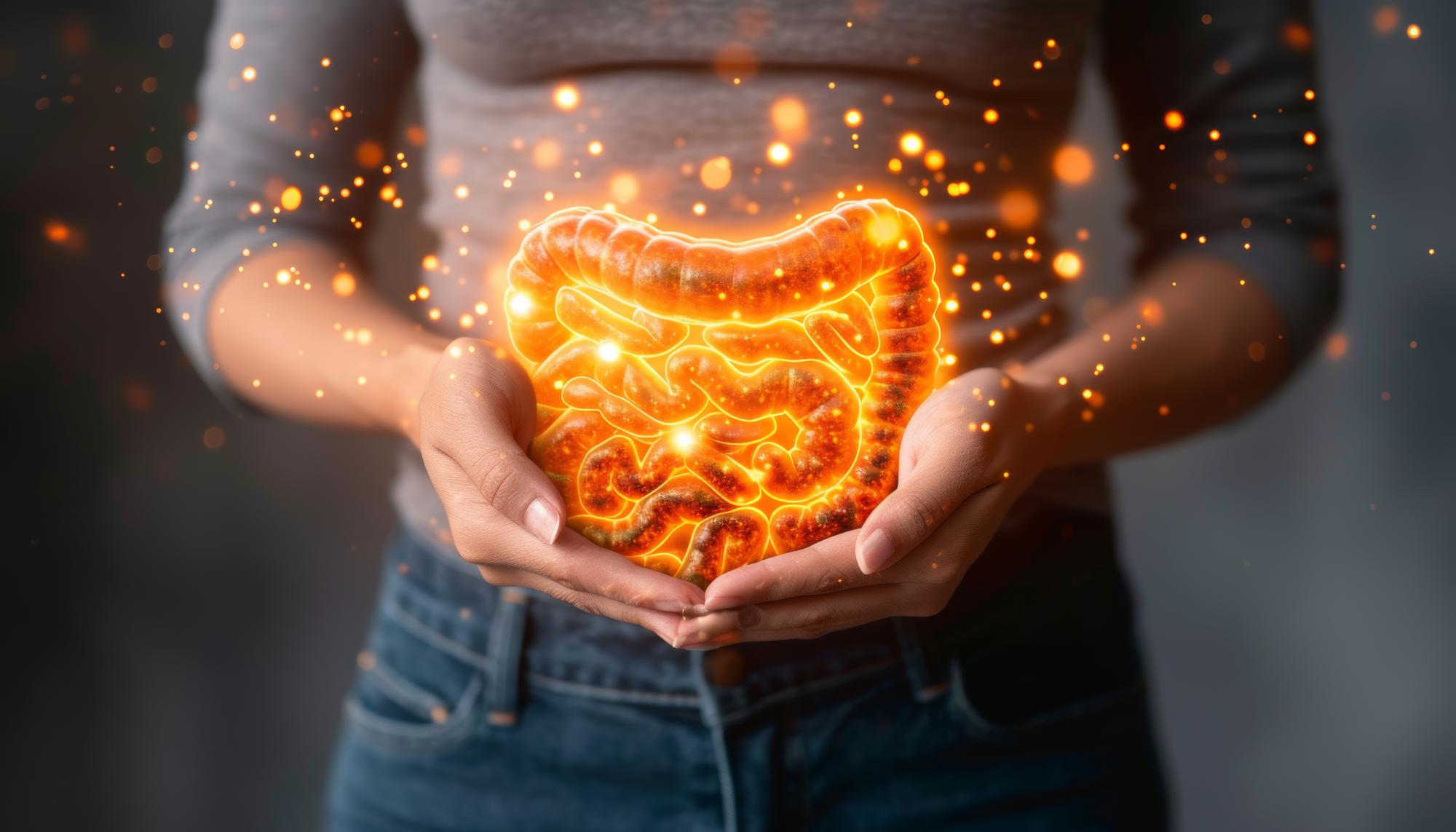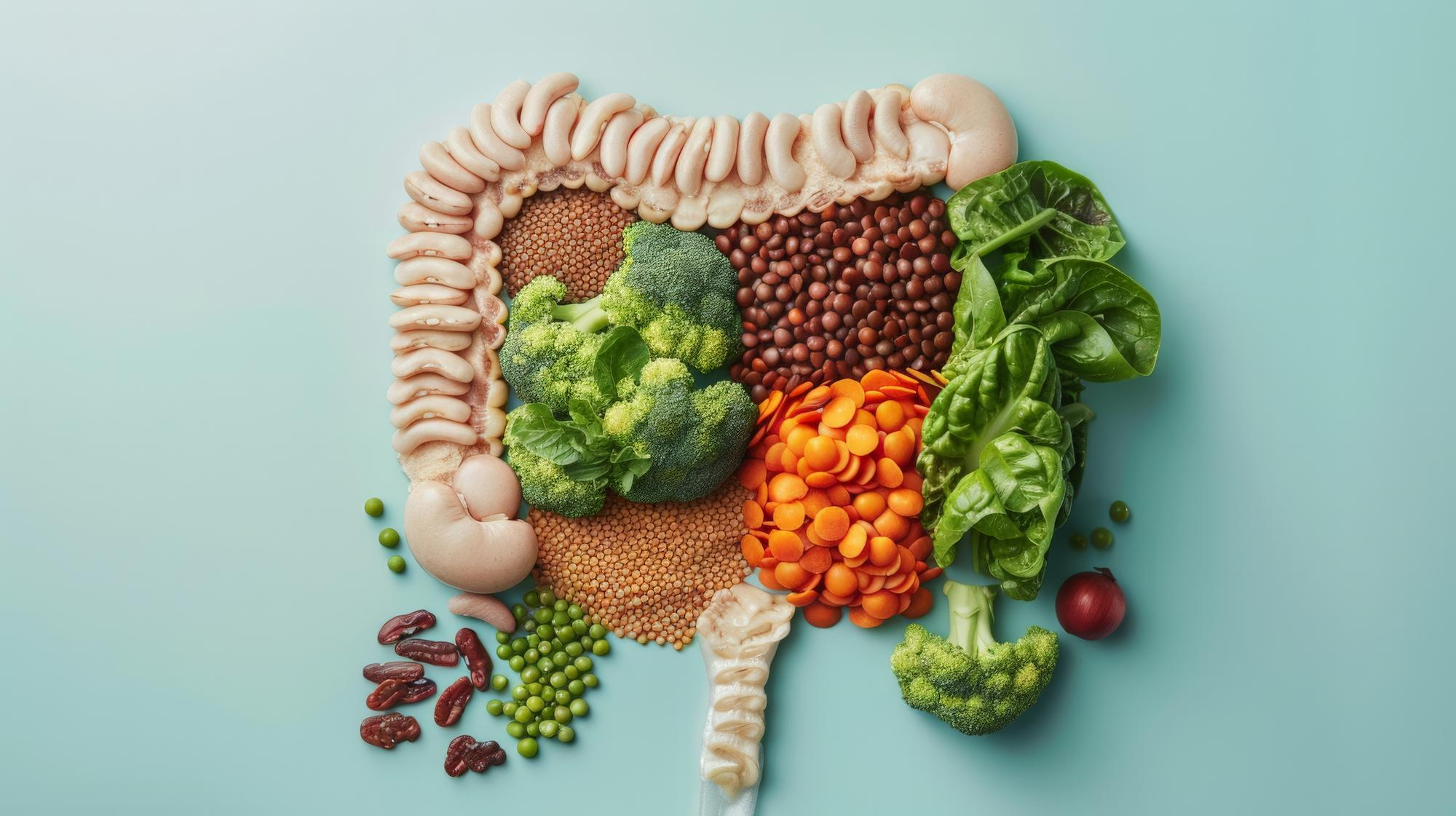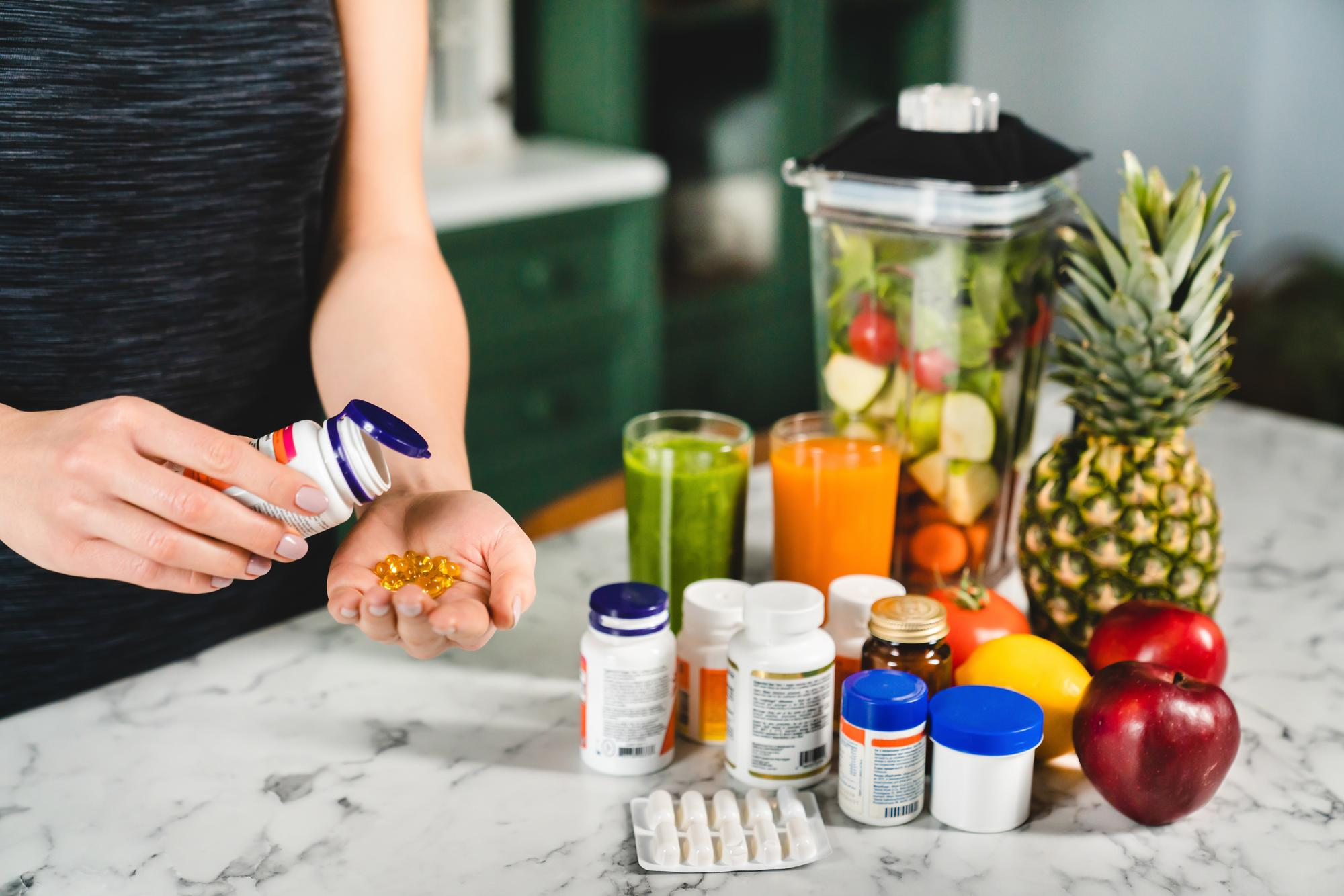
Anatomical illustration of the human intestine representing a healthy gut.
The next time someone says, "Trust your gut," they may be offering better health advice than they know. Your gut, or digestive system, does so much more than digest food. It's home to trillions of bacteria, viruses and fungi collectively called the gut microbiome that help with digestion, immunity and even mental well-being. In recent years, science has confirmed that gut health is linked to nearly every system in the body, making it one of the most important foundations of overall wellness.
If you've been hearing more about probiotics, prebiotics and the "gut-brain connection," here's your simple guide to understanding what it all means and how to start improving your digestive health.
Gut health encompasses the balance and function of the microbial populations residing in your intestinal tract.
A healthy gut has a diversity of good bacteria that:
When this balance is disrupted, a condition known as Gut Dysbiosis, you may experience such symptoms as digestive issues, fatigue, inflammation, skin problems or mood changes.
Your gut and your brain speak continuously through the vagus nerve and chemical messengers such as serotonin, 90% of which is produced in the gut. This connection explains why problems in the gut can affect mood and why stress can create problems in the stomach.
Poor gut health has been linked to mental health concerns such as anxiety, depression and brain fog. On the flip side, improving your gut microbiome can enhance focus, energy and emotional resilience.
You don't always need a lab test to know something's off. Common signs of poor gut health include:
If you frequently encounter many of these, your gut may need some extra care.
What you eat directly shapes your microbiome. A gut-friendly diet focuses on fiber, diversity and fermented foods.
Here are some must have options:
Whole grains, oats, beans, lentils, fruits and vegetables feed beneficial bacteria.
Yogurt, kefir, kimchi, sauerkraut and kombucha introduce good bacteria.
They are the fibers that feed beneficial bacteria in your gut. Excellent sources include garlic, onions, bananas and asparagus.
You find these in fermented foods and supplements and they help restore balance to your gut flora.
Dark chocolate, green tea and berries act as antioxidants that are beneficial to your gut lining.
Other ways to ensure a balanced gut microbiome include avoiding excessive processed foods, refined sugar and artificial sweeteners.

An assortment of gut-friendly foods arranged in the shape of human intestines.
The gut is not only affected by diet but also by your lifestyle. Simple habits can make a great difference.
Chronic stress changes the gut bacteria and slows the digestion process. Practice deep breathing, yoga, or mindfulness to soothe your gut-brain connection.
Poor sleep disrupts the microbiome, increasing inflammation. Aim for 7–9 hours of quality sleep each night.
Water aids digestion and helps your gut flush out toxins. Herbal teas and broths support hydration, too.
Regular exercises enhance digestion and encourage the growth of friendly gut bacteria. Even brisk walking helps.
While sometimes necessary, overuse of antibiotics can wipe out good bacteria. Only use them when prescribed, and support recovery with probiotics afterward.
Sometimes, the intake of food is not enough. One needs additional measures to restore gut balance. The supplement of probiotics helps by adding to the population of good bacteria and feeding those bacteria with prebiotic fibers. Multistrain probiotic formulas having at least 10 billion CFUs will work better. Consistency over several weeks will help achieve the benefit.
Other helpful supplements include:
Consult with your doctor before taking new supplements, especially for existing conditions.

Gut health supplements, including probiotic capsules and digestive enzymes.
Did you know that about 70% of your immune system resides in your gut? The gut serves as a training ground for immune cells, teaching them to differentiate between friendly bacteria and harmful invaders. When your gut barrier is strong, it prevents toxins and pathogens from leaking into your bloodstream, a condition known as Leaky Gut Syndrome when compromised.
Maintaining gut health therefore strengthens your body's natural defenses and can help reduce the frequency of infections and allergies.
If you have been eating poorly, feeling bloated or recovering from antibiotics, it may be time to give your gut a gentle reset.
Here is a simple 5-day approach:
It is common to have occasional bloating or indigestion however, persistent symptoms must not be overlooked.
Consult a healthcare professional if you have:
The early stages of the mentioned digestive conditions such as IBS, celiac disease or inflammatory bowel disease are easier to manage once diagnosed.
At Prakash Hospital, our team of doctors focuses on restoring and maintaining optimal health through evidence-based care. Whether you’re struggling with chronic digestive issues, unexplained fatigue or simply want to improve your overall wellness, our specialists provide personalised treatment plans, dietary guidance and advanced support to help you achieve lasting effects and better quality of life.
Your gut is the center of your body's health, from your immunity to your mood. Understanding the basics of gut health and making small consistent changes to your diet and lifestyle can quite literally transform your energy, digestion and mental clarity. Remember, a healthy gut equals a healthier you!
Start today by eating more fiber, adding in probiotics, managing your stress and listening to your body. Your microbiome will thank you.
We offer expert care across key specialties, including Medicine, Cardiology, Orthopaedics, ENT, Gynaecology, and more—delivering trusted treatment under one roof.
Prakash Hospital Pvt. Ltd. is a 100 bedded NABH NABL accredited multispecialty hospital along with a center of trauma and orthopedics. We are in the service of society since 2001.
OUR SPECIALITIES
Contact Us
D – 12A, 12B, Sector-33, G. B. Nagar, Noida, Uttar Pradesh 201301
+91-8826000033

© 2026 All rights reserved.
Designed and Developed by Zarle Infotech